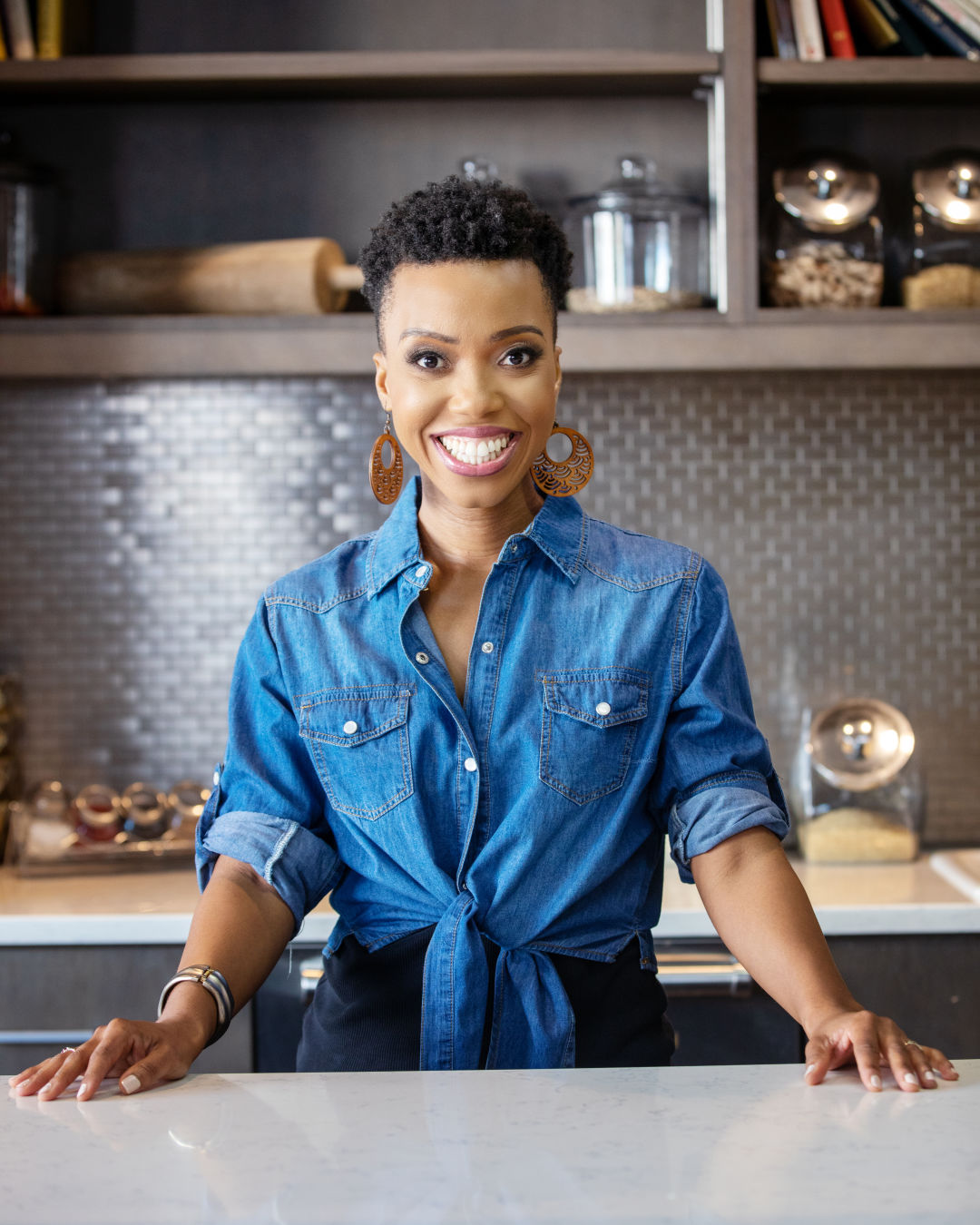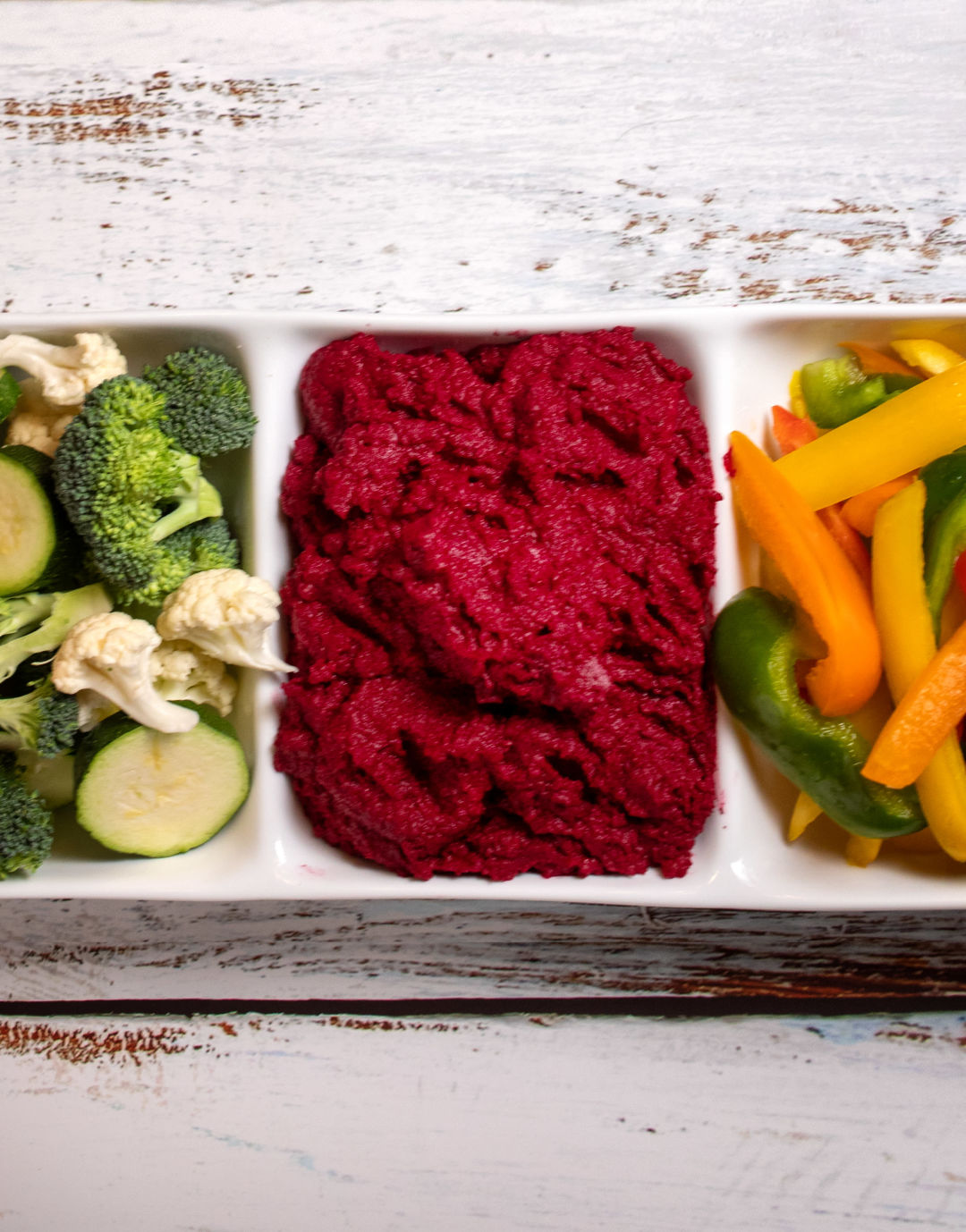Dalia Colón Highlights Florida's Fruits and Veggies in The Florida Vegetarian Cookbook

Image: Courtesy Photo
You may wonder how a first-time cookbook author could pull advance praise from culinary bigwigs like chefs Art Smith and Michelle Bernstein. But although Dalia Colón, author of The Florida Vegetarian Cookbook, may be new to the cookbook game, she's no stranger to Florida's multi-faceted food system.
The former James Beard Awards judge also hosts a food podcast on WUSF, the area's local NPR affiliate, called The Zest, in which she interviews chefs, farmers and food entrepreneurs. Additionally, she produces and co-hosts WEDU Arts Plus on our local PBS station.
Oh, and did we mention she has an Emmy Award?
Colón became a vegetarian in 2013 after watching the documentary Vegucated. She gave up meat and poured herself into learning about a plant-based diet that's rich in locally-sourced produce. Inspired by Florida's unique fruits and vegetables, she created The Florida Vegetarian Cookbook. We talked to Colón about what it's like to write a cookbook, her favorite recipe, how she managed to sneak collard greens into a dessert, and more. This interview has been condensed and edited for clarity.
Writing a cookbook is an enormous undertaking. How long did it take?
"Close to three years. In early 2021, I got an email from an editor at University Press of Florida saying they were [looking for] new cookbook authors and asked if I was interested. It was during the pandemic, I had kids at home and I barely had time to take a shower. Oh, and I was also teaching my preschooler how to read. So, of course, I said yes, why not add one more thing?
"Writing a cookbook is never something I thought about, but when the opportunity fell into my lap, I thought it could be interesting."

Image: Courtesy Photo
How did you manage it all?
"One of the best things about this project was learning that I had the support of so many people. My parents helped with the kids and neighbors let me store food in their refrigerator or let me borrow dishes to shoot the food. The cookbook feels like a little time capsule of my community. I want people to feel that when they read it."
What are some of the things you learned during the recipe development process?
"I had to put myself on a schedule. We ultimately decided to include 120 recipes in the book. I created five good recipes a week, but to create five good ones, you might have to test 10.
"I also thought about what was in season. So one week was mango week and I thought about everything I could make with mangoes. And then I’d do something else with another produce item the next week."
What was one recipe that didn't make the cut?
"Jackfruit can be a good substitute for meat because it has the same texture and takes on flavors really well when placed in a sauce. To pay homage to ropa vieja here in Florida, I thought I’d try to make it, but vegetarian. I put all the ingredients into a crockpot and within 30 minutes I could smell that it wasn’t going to work. I think the jackfruit might have been too ripe. I was so disappointed. I hate wasting food, and I certainly couldn’t offer it to my next-door neighbors. I feel like I can still smell it in my nose. I'm still traumatized."
What were some of the other challenges?
"Pushing myself to come up with over 100 recipes was the challenge. Most of us cook the same handful of meals over and over: a pasta dish, a Mexican dish, an Asian dish, pizza, rinse and repeat. When you’re asked to come up with more than 100 recipes, you have to really dig deep."

Image: Chip Weiner
Do you have a favorite recipe from the book?
"The ruby red roasted beet hummus. It checks a lot of boxes. It can be made ahead of time, it can be served at room temperature, it's vegan and it’s pretty. You serve it with veggies, crackers, pita chips, anything. Put it on a turkey sandwich, no judgment! Even people who don’t think they like beets end up loving this hummus. It’s very versatile and is a showstopper."
What was it like styling the food for photos?
"We had three days to do the photoshoot, and the dates could not be changed. So we were on a strict production schedule. We wanted the food to be edible, because we also wanted to eat it after production, which isn’t always the case with food styling.
"Chip Weiner is a well-known food photographer in South Tampa. He has all these cool tricks. We were shooting crêpes and he asked if we had any cola. He poured it into a coffee cup to look like coffee to go alongside the crêpes. He even brought tweezers for little slivers of basil.
"Chip also told me in advance that brown doesn’t photograph well. With a vegetarian cookbook that’s less of an issue because there’s so much beautiful food. Fruits and vegetables are naturally attractive—all those colors!"

Image: Chip Weiner
Speaking of colors, you have a recipe called “Kelly Green Collard Cake." Collards give the cake its bright-green hue. Tell us about this one.
"It’s so good! I was bringing this cake to a houseful of strangers for a holiday party, and they all thought it was just pistachio cake. I didn’t tell them about the collards until they tried it and loved it. What a great way to sneak in vegetables and vitamins. You have to try it."
As a vegetarian, you have to be cognizant of complete proteins in order to meet your amino acid requirements. Where have you sourced your nutrition information?
"It's the best time in history to experiment with a plant-based diet because there are so many resources. You can read nutrition magazines or books, but you can also turn to YouTube, social media and blogs. There are some fantastic plant-based bloggers.
"For my book’s research, I tried to focus on recipes that were relatively easy for the average person to make but targeted at meat eaters. I wanted to make [vegetarianism] accessible. I tried to streamline things for people who are dipping a toe into the plant-based waters, because once you get into that universe, it’s not as hard as it looks from the outside."



